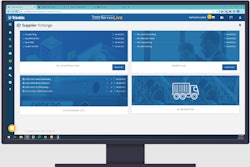NEW YORK, NY — Oxford Economics recently collaborated with Nimble Storage to research what’s called the “App-Data Gap”— the delay that occurs when someone interacts with a business application and the application’s response time.
The survey of nearly 3,000 business users and IT professionals worldwide reached an overwhelming: consensus: nearly two-thirds of all respondents say that the speed of applications they use at work significantly impacts their ability to perform their best. That number is even higher in the U.S. — 76 percent.
Just under half of survey respondents report losing around 10 percent of their workday to slow computers — about 48 minutes every day. And, extrapolating from the survey results, U.S. companies may be losing as much as $7.5 billion annually of worker time due to delays.
That’s a lot of money spent watching a spinning wheel or hourglass.
The survey also shows that IT professionals need to better understand the frustrations and priorities of their employees. For example, respondents identify email delays both as the number-one reason for declining workplace productivity, and as the most critical business application for their company’s overall competitiveness and service to customers. Yet only half of IT professionals say that they provide “above average” or “outstanding” email performance to their end-users.
The lesson? What may seem like a minor annoyance — watching your outbox send that last email of the day at a glacial pace, for example — adds up, and fast. Since today’s business moves at the speed of thought, the tools we use need to keep up.
Ben Wright is an associate editor at Oxford Economics






















